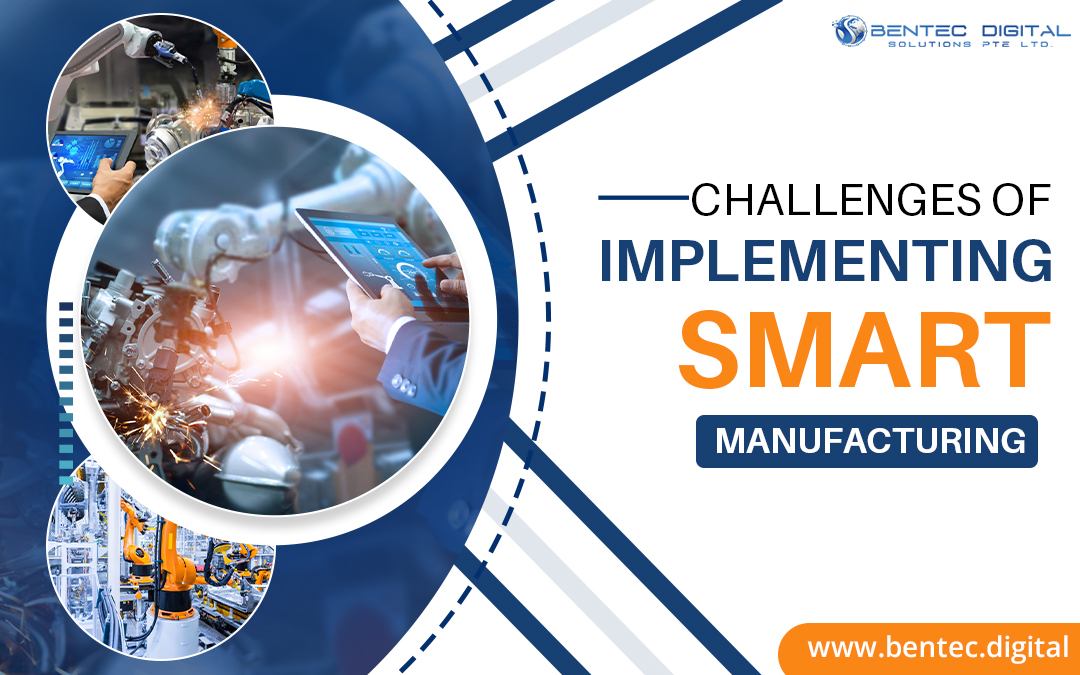In several sectors, Smart manufacturing Singapore enhances corporate operations, product quality, and efficiency. Manufacturers do, however, run a number of challenges that might make changing to new technologies challenging. Businesses must overcome many obstacles to gain from smart manufacturing. These issues include high startup startup costs, merger difficulties, poor technology adoption, and change management. This blog will explain the primary issues of smart manufacturing and how firms may fix them.
Implementation Cost
The high upfront cost of smart manufacturing technologies is a major issue for companies. Sensors, robotics, equipment, and powerful software are expensive to employ these technologies. The startup startup cost might deter many firms, especially small and medium-sized ones. Equipment and software are only the start. System installation, personnel training, and infrastructure upgrades to accommodate new systems are costly. Although these expenses could save money and increase efficiency, certain companies could not be able to handle the instant financial load. Businesses should carefully assess the return on investment (ROI) of smart manufacturing and identify strategies to distribute the costs, like phase-wise implementation or government grants and awards reception.
Integration
Another major issue is the integration of Smart manufacturing Singapore systems with current and outdated equipment. Factory floors sometimes utilize obsolete machinery that do not function with smart manufacturing technology. It takes time and money to add new systems to old ones since they require unique solutions and major alterations. Sometimes firms need new tools to operate with smart technology. This may increase costs. Integration may cause output breakdowns, lowering operational efficiency.
Technology Adoption
For systems of smart manufacturing, implementing new technology presents challenges. Robots, data analytics, and artificial intelligence help companies; many employees do not want to use them though. New technologies may scare traditional manufacturing workers. Some people oppose these technologies because they do not comprehend them or fear losing employment. Companies must invest in employee training since not all employees can utilize and manage new systems.
Change Management
Change management is crucial to smart manufacturing. A company’s perspective can alter when it adopts an autonomous, data-driven strategy. Employees, employers, and other key individuals must support the new ways for them to function. Staff members experience uncertainty and excessive workload when change management planning is weak or nonexistent. This can depress individuals and prevent them from using new tools. To manage change, companies must clearly communicate the benefits of smart manufacturing to employees and involve them.
Role of Intelligent PDUs in Smart Manufacturing
Smart manufacturing depends heavily on implementing intelligent power distribution units (PDUs) for its infrastructure. Building power distribution monitoring and regulation functions are managed through these Intelligent PDU Singapore to achieve maximum efficiency. Intelligent PDUs prevent power surges and gaps that might impede production or harm equipment in smart manufacturing. Implementing smart PDUs has drawbacks; that is, new gadgets must be compatible with previous electrical systems and set up properly for manufacturing. Intelligent PDUs require expertise, effort, and money, like other smart manufacturing technologies. They are helpful in smart manufacturing because they increase productivity, minimize energy costs, and reduce downtime.
Conclusion Smart manufacturing enhances cost, production, decision-making, and product quality. Never undervalue the difficulties in execution. Manufacturers have to overcome high application costs, complex integration, resistance to accepting new technology, and the need for outstanding change management if they are to completely profit from smart manufacturing. Intelligent PDU Singapore assists, but they also complicate things. Companies that can overcome these issues will have more efficient procedures and a competitive edge. Manufacturers can maximize smart manufacturing and assure long-term success by planning the shift and investing in the necessary tools.
